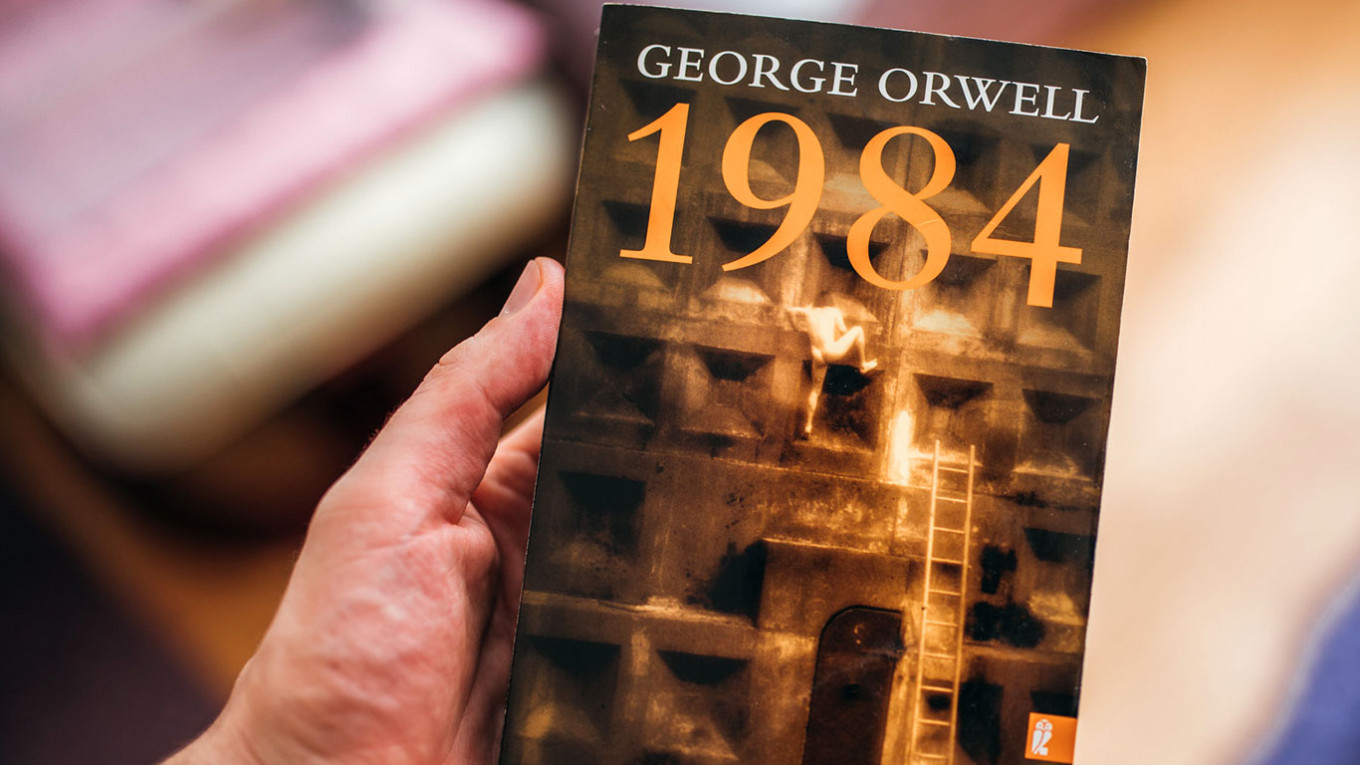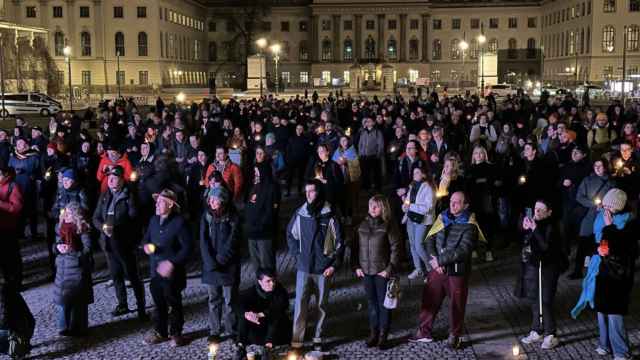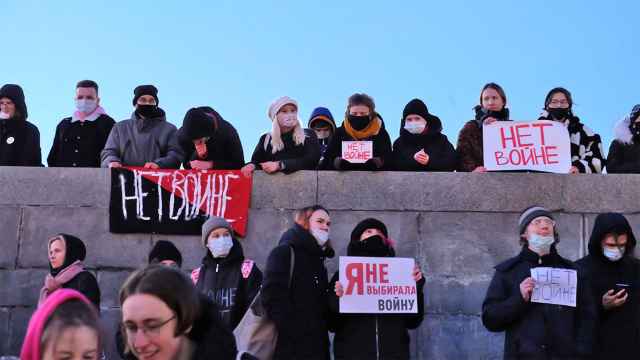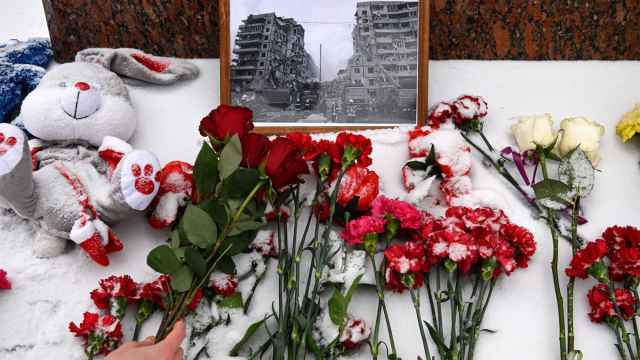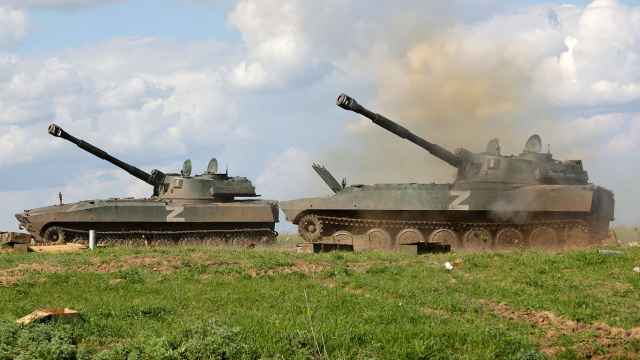George Orwell’s dystopian novel “1984” has been catapulted into the spotlight in Russia since the country invaded Ukraine on Feb. 24.
Many have drawn parallels between the book — written in 1949 to describe a world under totalitarian surveillance — and modern Russia, where ordinary people are punished for calling Moscow’s attack on Ukraine a war.
The novel is now at the heart of anti-war protests, as well as denunciations from officials who claim the book reflects Western societies.
Has “1984” become more popular in Russia since the start of the war?
Sales of “1984” in Russia grew 30% in bookstores and 75% online in March compared to the same period last year. Quotes from the novel have been widely used among anti-war activists in Moscow, St. Petersburg, Yekaterinburg and other Russian cities.
However, Orwell’s novel has always been popular in Putin’s Russia: it was one of the decade’s best-selling books between 2010 and 2019, selling 1.8 million physical copies. The novel even made Russia’s top 10 bestsellers in 2015, a year after Moscow annexed Ukraine’s Crimean peninsula.
Can you still read “1984” in Russia?
In theory, “1984” has not been banned and can be distributed freely.
Lawyer Anastasia Rudenko and businessman Dmitry Silin began distributing free copies of “1984” last month to passersby in the city of Ivanovo, northeast of Moscow.
The pair spent about $1,500 on copies of “1984,” giving them away in the town’s parks and squares. They have distributed 500 copies so far this month.
But the pair were detained and charged with discrediting the Russian army, which is punishable with a jail term of 15 years in prison.
Yet, while “1984” is still available in Russia, its future could be under threat elsewhere. In neighboring Belarus, the novel has reportedly been pulled from the shelves of the country’s largest book distributor, Belkniga — although officials deny that the book has been formally “banned.”
What are Russian officials saying about “1984?”
Maria Zakharova, the spokeswoman for Russia’s Foreign Ministry, last week rejected the idea that Russia’s authoritarian turn resembled the world of “1984,” claiming instead that Orwell’s book was about “the end of [Western] liberalism.”
“For many years we believed that Orwell described the horrors of totalitarianism. This is one of the biggest global fakes,” she said in a public speech in Yekaterinburg. “He depicted how liberalism would lead humanity to a dead end.”
Her sentiments were echoed by Anatoly Vasserman, a parliamentary deputy from the ruling United Russia party, who told Russian news outlet News.ru that “everything Orwell wrote about was his own experience at the BBC,” referring to the author’s work at the U.K. media outlet during World War II.
Is “1984” really about the end of liberalism?
Since “1984” was published in 1949, many readers have linked the novel’s dystopian society to the Soviet Union. The country’s ruler, Big Brother, has a black mustache and hair similar to Soviet leader Joseph Stalin, and leads his domain under the official ideology of “neobolshevism.”
The Soviet authorities also saw parallels — so much so that they banned the book until 1988.
They also pushed the idea that “1984” was a critique of capitalist liberalism, the same claim now echoed by Russian officials.
“Every year from 1949 to 1984 made it clearer and clearer that Orwell, unwittingly or unknowingly (one could argue the latter), had painted not a caricature of socialism and communism, but a quite realistic picture of contemporary capitalism-imperialism,” argued an article about “1984” that appeared in the state-owned Izvestia newspaper on Jan. 14, 1984.
To bolster their claims, Soviet officials seized on Orwell’s negative comments about capitalism, Soviet literature critic Arlen Blum wrote in 2003.
The comments include a section from Orwell’s 1941 essay “Literature and Totalitarianism,” where he stated that “the period of free capitalism is coming to an end.”
What Soviet academics chose to ignore, however, was the preceding sentence in which the author wrote: “When one mentions totalitarianism one thinks immediately of Germany, Russia, Italy…”
A Message from The Moscow Times:
Dear readers,
We are facing unprecedented challenges. Russia's Prosecutor General's Office has designated The Moscow Times as an "undesirable" organization, criminalizing our work and putting our staff at risk of prosecution. This follows our earlier unjust labeling as a "foreign agent."
These actions are direct attempts to silence independent journalism in Russia. The authorities claim our work "discredits the decisions of the Russian leadership." We see things differently: we strive to provide accurate, unbiased reporting on Russia.
We, the journalists of The Moscow Times, refuse to be silenced. But to continue our work, we need your help.
Your support, no matter how small, makes a world of difference. If you can, please support us monthly starting from just $2. It's quick to set up, and every contribution makes a significant impact.
By supporting The Moscow Times, you're defending open, independent journalism in the face of repression. Thank you for standing with us.
Remind me later.


